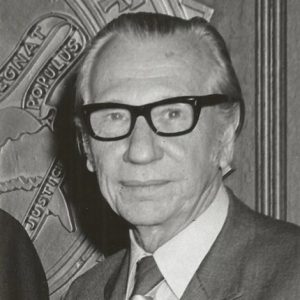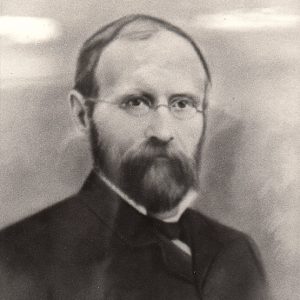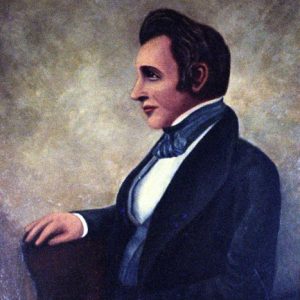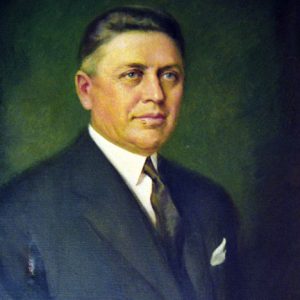calsfoundation@cals.org
Office of Secretary of State
The secretary of state is a member of Arkansas’s executive branch and holds one of the state’s seven constitutional offices. Originally the state’s primary record keeper, the position has grown since its inception to include the oversight of elections, production of educational materials on Arkansas history, maintenance of the Arkansas State Capitol and its grounds, and several business-related responsibilities.
The position of secretary of state was established with the constitution of 1836 as a carryover of the territorial secretary position (filled by presidential appointees), with the secretary of state being elected by a joint vote of both houses of the Arkansas General Assembly to a four-year term (other constitutional officers, save that of governor, were given two-year terms). The constitution of 1874 directed the secretary of state to keep “a full and accurate record of all the official acts and proceedings of the Governor; and, when required, lay the same with all papers, minutes and vouchers relating thereto, before either branch of the General Assembly.” Beginning in 1880, the secretary of state’s office began publishing a biennial report on the accomplishments of the secretary of state, as well as state government in general; in 1895, the publication of these reports was mandated by the Arkansas General Assembly. These compilations of statistical and historical information continued until 1926, when economic hardship curtailed their publication. In 1958, Claris G. “Crip” Hall renewed the publication, now called the Historical Report of the Secretary of State, though it is now published every ten years.
The office of the secretary of state encompasses four major divisions. The Buildings and Grounds Division maintains the Arkansas State Capitol, the offices in it, and the capitol grounds. The Business and Commercial Services Division provides services to individuals or companies who conduct business with the state government, as well as overseeing trademarks and notary public certifications. The Communications and Education Division performs civic and history-related outreach through such programs as voter registration drives and the distribution of educational materials related to Arkansas’s history and culture. The Elections Division oversees state and federal elections; this includes maintaining election records, training poll workers, and ensuring compliance with federal election laws. The State Capitol Police fall under the jurisdiction of the secretary of state. The secretary of state also publishes the Arkansas Register, an official publication containing the rules and regulations adopted by state agencies, boards, and commissions, as well as attorney general opinions, legislative audit notices, and insurance department orders.
Robert Crittenden served as Arkansas’s first territorial secretary and was able to exert considerable political power due to the frequent absence of the territorial governors. William Savin Fulton served as the second territorial secretary and was later appointed as territorial governor. However, with the exception of Tom J. Terral, no secretary of state has gone on to be elected to the office of governor. The first woman to serve as secretary of state was Nancy J. Hall, who was appointed to the position in 1961 following the death in office of her husband, the long-serving Claris G. Hall; Sharon Priest was the first woman elected to the position.
| Name | Party | Began | Ended |
| Robert A. Watkins | 1836 | 1840 | |
| D. B. Greer | 1840 | 1842 | |
| John Winfrey | May 1842 | August 1842 | |
| D. B. Greer | 1842 | 1859 | |
| Alexander Boileau | 1859 | 1860 | |
| S. W. Weaver | Jan 1860 | March 1860 | |
| John I. Stirman | 1860 | 1862 | |
| O. H. Oates | 1862 | 1864 | |
| Robert J. T. White | Rep | 1864 | 1871 |
| James M. Johnson | Rep | 1871 | 1874 |
| Benton B. Beavers | Dem | 1874 | 1879 |
| Jacob Frolich | Dem | 1879 | 1885 |
| Elias B. Moore | Dem | 1885 | 1889 |
| B. B. Chism | Dem | 1889 | 1893 |
| H. B. Armistead | Dem | 1893 | 1897 |
| Alexander C. Hull | Dem | 1897 | 1901 |
| J. W. Crockett | Dem | 1901 | 1905 |
| O. C. Ludwig | Dem | 1905 | 1911 |
| Earle W. Hodges | Dem | 1911 | 1917 |
| Tom J. Terral | Dem | 1917 | 1921 |
| Ira C. Hopper | Dem | 1921 | 1925 |
| Jim B. Higgins | Dem | 1925 | 1931 |
| Ed F. McDonald | Dem | 1931 | 1937 |
| C. G. “Crip” Hall | Dem | 1937 | 1961 |
| Nancy J. Hall | 1961 | 1963 | |
| Kelly Bryant | Dem | 1963 | 1975 |
| George O. Jernigan Jr. | 1975 | 1977 | |
| Winston Bryant | Dem | 1977 | 1979 |
| Paul Riviere | Dem | 1979 | 1985 |
| Bill McCuen | Dem | 1985 | 1995 |
| Sharon Priest | Dem | 1995 | 2003 |
| Charlie Daniels | Dem | 2003 | 2011 |
| Mark Martin | Rep | 2011 | 2019 |
| John Thurston | Rep | 2019 | 2025 |
| Cole Jester | 2025 |
Before 1864, Secretaries of State were appointed by the state legislature. No party is listed for those appointed (including also Nancy J. Hall, appointed in 1961, George Jernigan, appointed in 1975, and Cole Jester, appointed in 2024 to begin serving the following year).
For additional information:
Arkansas Secretary of State. http://www.sos.arkansas.gov/ (accessed March 28, 2022).
Historical Report of the Secretary of State. Little Rock: Arkansas Secretary of State’s Office, 2008.
Staff of the CALS Encyclopedia of Arkansas






















Comments
No comments on this entry yet.